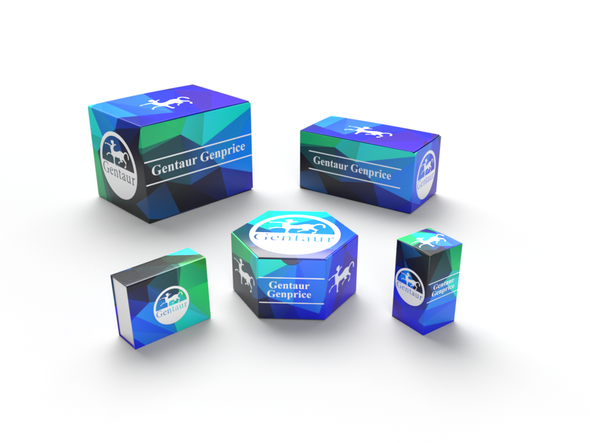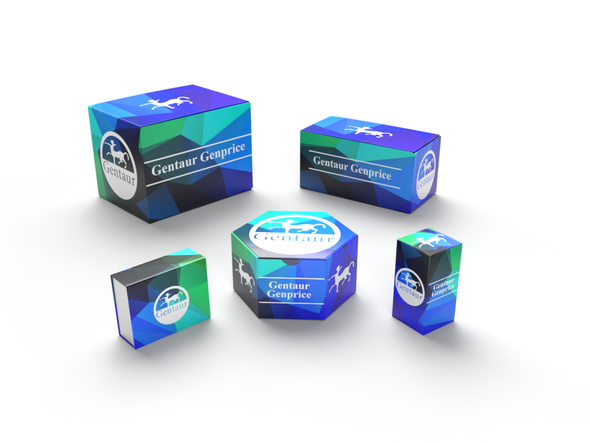Description
TRIM37 Antibody | 56-970 | Gentaur UK, US & Europe Distribution
Host: Rabbit
Reactivity: Human
Homology: N/A
Immunogen: This TRIM37 antibody is generated from rabbits immunized with a KLH conjugated synthetic peptide between 936-964 amino acids from the C-terminal region of human TRIM37.
Research Area: Other
Tested Application: WB
Application: For WB starting dilution is: 1:1000
Specificiy: N/A
Positive Control 1: N/A
Positive Control 2: N/A
Positive Control 3: N/A
Positive Control 4: N/A
Positive Control 5: N/A
Positive Control 6: N/A
Molecular Weight: 108 kDa
Validation: N/A
Isoform: N/A
Purification: This antibody is purified through a protein A column, followed by peptide affinity purification.
Clonality: Polyclonal
Clone: N/A
Isotype: Rabbit Ig
Conjugate: Unconjugated
Physical State: Liquid
Buffer: Supplied in PBS with 0.09% (W/V) sodium azide.
Concentration: batch dependent
Storage Condition: Store at 4˚C for three months and -20˚C, stable for up to one year. As with all antibodies care should be taken to avoid repeated freeze thaw cycles. Antibodies should not be exposed to prolonged high temperatures.
Alternate Name: E3 ubiquitin-protein ligase TRIM37, 632-, Mulibrey nanism protein, Tripartite motif-containing protein 37, TRIM37, KIAA0898, MUL, POB1
User Note: Optimal dilutions for each application to be determined by the researcher.
BACKGROUND: This gene encodes a member of the tripartite motif (TRIM) family, whose members are involved in diverse cellular functions such as developmental patterning and oncogenesis. The TRIM motif includes zinc-binding domains, a RING finger region, a B-box motif and a coiled-coil domain. The RING finger and B-box domains chelate zinc and might be involved in protein-protein and/or protein-nucleic acid interactions. The gene mutations are associated with mulibrey (muscle-liver-brain-eye) nanism, an autosomal recessive disorder that involves several tissues of mesodermal origin. Alternatively spliced transcript variants encoding the same protein have been identified. [provided by RefSeq].






